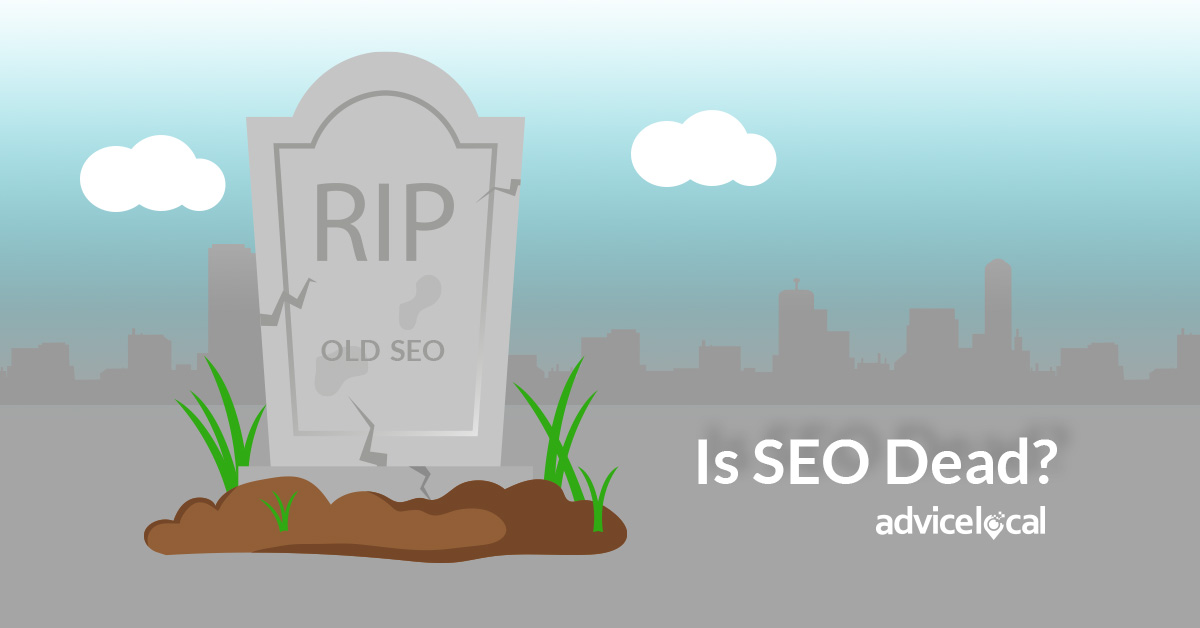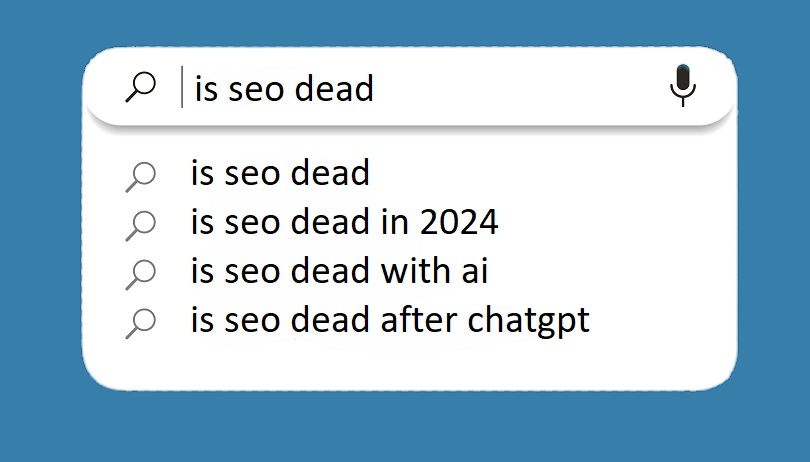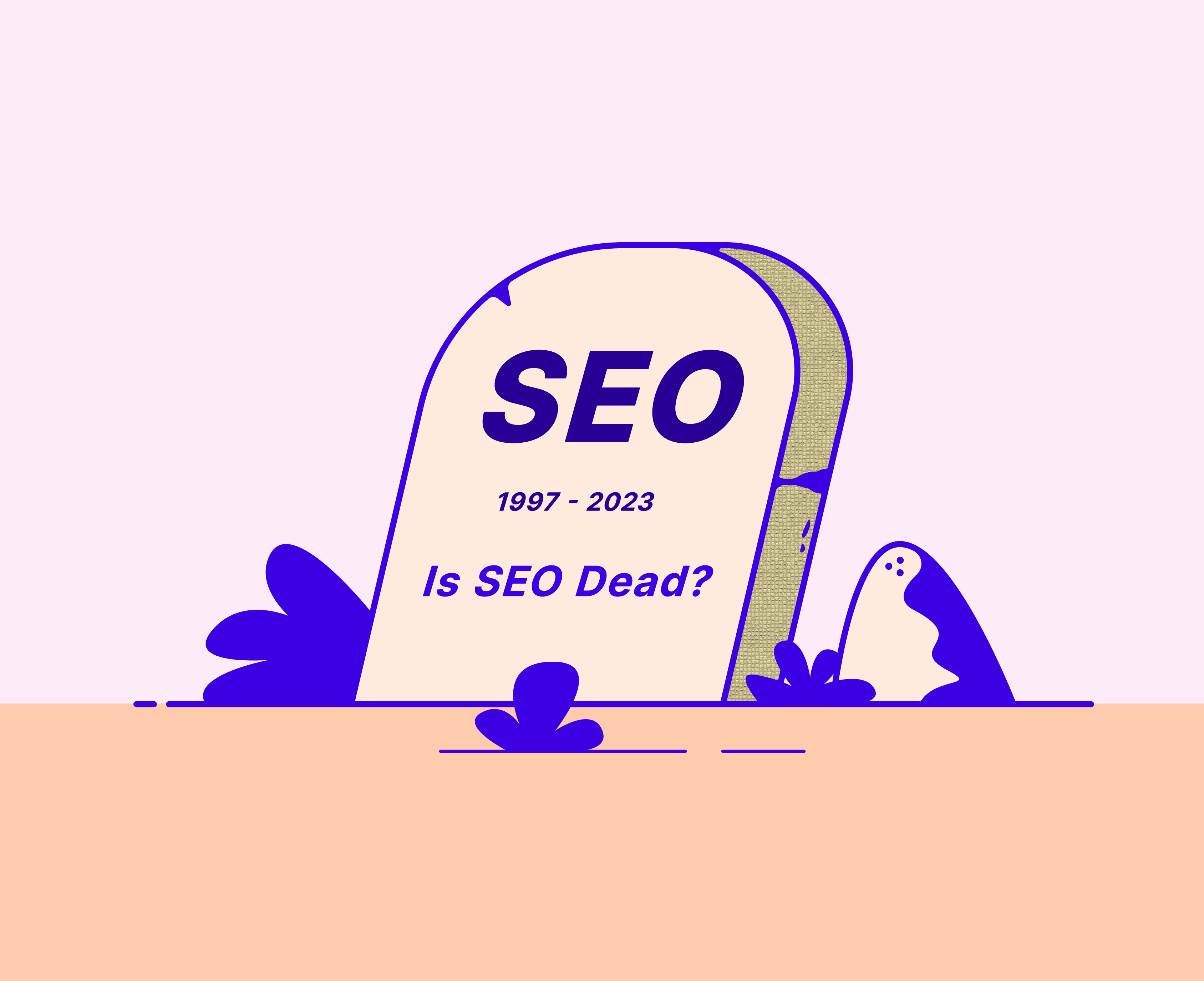No, SEO is not dead. It has evolved and continues to change.
The world of digital marketing is always evolving. With these changes, many wonder if SEO still matters. In recent years, new techniques and algorithms have emerged. These changes make some think SEO is outdated. But, SEO is far from dead.
It has adapted and grown with the times. Today’s SEO focuses on quality content and user experience. Search engines are smarter now. They reward websites that offer real value. So, while SEO has changed, it is still very much alive. Effective SEO strategies can still boost your online presence. Let’s explore why SEO remains crucial in the digital age.
The Rise Of Search Algorithms
The rise of search algorithms has transformed the landscape of SEO. Search engines like Google constantly improve their algorithms. These updates impact how websites rank. Understanding these changes is crucial for SEO success. Let’s dive into some key aspects.
Google’s Algorithm Updates
Google frequently updates its search algorithms. These updates aim to deliver better search results. They focus on relevance and user experience. Major updates include Panda, Penguin, and Hummingbird. Panda targets low-quality content. Penguin tackles spammy links. Hummingbird focuses on understanding search intent.
Each update reshapes the SEO landscape. They set new standards for website optimization. Websites must adapt to stay relevant. Failing to keep up can hurt rankings. So, staying informed about updates is essential.
Impact On Seo Practices
Google’s updates influence SEO practices significantly. Content quality has become a top priority. Websites must produce valuable and relevant content. Keyword stuffing is no longer effective. Instead, content should be natural and user-focused.
Backlink strategies have also evolved. Quality over quantity matters now. Links from reputable sites boost rankings. Spammy links can lead to penalties. Mobile optimization has gained importance too. Google’s Mobile-First Indexing emphasizes mobile-friendly websites. Fast loading speeds and responsive designs are crucial.
User experience plays a bigger role. Factors like site speed, navigation, and usability impact rankings. Engaging content and a seamless user experience are key. Adaptation to these changes ensures better SEO performance.

Credit: portent.com
Common Misconceptions
Many believe that SEO is outdated. They think it no longer works. These common misconceptions can mislead business owners. Let’s debunk some of these myths.
Seo Is Just Keywords
Some think SEO is all about keywords. While keywords are important, they are not the only factor. Modern SEO includes:
- Quality Content
- User Experience
- Mobile Optimization
- Backlinks
A well-rounded SEO strategy considers many elements. Focusing only on keywords can harm your rankings. Search engines look for more than just keyword density.
Seo Guarantees Instant Results
Another myth is that SEO offers instant results. SEO is a long-term strategy. It takes time to see significant changes. Immediate results are rare and often unsustainable.
SEO involves:
- On-page Optimization
- Technical SEO
- Content Creation
- Link Building
These steps require consistent effort. Patience is key. Quick fixes and shortcuts can lead to penalties.
Understanding these misconceptions helps set realistic expectations. SEO is not dead. It evolves. Adapting to these changes is crucial for success.
Modern Seo Strategies
Is SEO dead? Not at all. It’s just evolving. Modern SEO strategies focus on more than just keywords. They emphasize content quality and user experience. Let’s explore these in detail.
Content Quality
High-quality content is essential. Search engines prioritize well-written, relevant content. Here are some key points:
- Originality: Avoid copied content. Unique content ranks better.
- Value: Provide useful information. Answer user questions.
- Structure: Use headings, lists, and short paragraphs.
User Experience Optimization
User experience (UX) is crucial. Search engines consider how users interact with your site. Focus on these areas:
- Loading Speed: Fast websites rank higher.
- Mobile Friendliness: Ensure your site looks good on mobile devices.
- Navigation: Make it easy for users to find information.
| Factor | Importance |
|---|---|
| Content Originality | High |
| Page Load Speed | High |
| Mobile Friendliness | Medium |
These modern strategies show that SEO is far from dead. Adapting to these changes can help your site rank better. Focus on content quality and user experience for the best results.

Credit: www.advicelocal.com
Role Of Mobile Search
The rise of smartphones changed how people use the internet. Mobile search is now a major part of online activity. People use their phones more than desktops for searching. This shift impacts how search engines rank websites. Businesses must focus on mobile search to stay relevant. Ignoring this trend can hurt your online presence.
Mobile-first Indexing
Google introduced mobile-first indexing to prioritize mobile-friendly sites. This means Google looks at the mobile version of your site first. If your site is not mobile-friendly, it may rank lower. Mobile-first indexing emphasizes the need for a good mobile experience. Optimizing your site for mobile is now essential.
Responsive Design Necessity
Responsive design makes your site look good on all devices. It adjusts the layout based on screen size. A responsive site improves user experience. It also helps with SEO. Google prefers sites that work well on mobile and desktop. A responsive design ensures your site meets this requirement. Make your site responsive to improve your search rankings.
Voice Search Optimization
Voice Search Optimization is becoming crucial in the SEO world. With the rise of voice-activated devices, optimizing for voice search is essential. People speak differently than they type. This change affects how we approach SEO.
Rise Of Smart Assistants
Smart assistants like Alexa, Siri, and Google Assistant are everywhere. They help users find information quickly. More households use smart assistants daily. Voice searches are increasing. This trend impacts SEO strategies.
Natural Language Processing
Natural Language Processing (NLP) is key to voice search. NLP helps smart assistants understand user intent. People ask questions in a conversational tone. SEO must adapt to these natural speech patterns. Keywords need to reflect how people talk.
Content should answer common questions directly. Using long-tail keywords can help. These keywords match the way people speak. Creating content that feels natural is important.
Seo Tools And Analytics
Search Engine Optimization (SEO) is not dead. It has evolved. The right tools can make a big difference in your SEO strategy. These tools help you analyze and improve your website’s performance. They assist in understanding what works and what doesn’t. Here, we explore some essential SEO tools and analytics.
Keyword Research Tools
Keyword research is the backbone of SEO. It helps you understand what your audience is searching for. There are many tools available to assist with keyword research.
- Google Keyword Planner: Free tool by Google. It helps find keywords related to your business.
- Ahrefs: Paid tool. It offers in-depth keyword analysis and difficulty scores.
- SEMrush: Another paid tool. It provides keyword suggestions and competition analysis.
These tools help you find keywords with high search volume and low competition. This can improve your chances of ranking higher in search results.
Performance Tracking
Tracking your website’s performance is crucial. It helps you see the results of your SEO efforts.
| Tool | Description |
|---|---|
| Google Analytics | Tracks website traffic, user behavior, and conversions. |
| Google Search Console | Monitors website performance, search queries, and indexing issues. |
| SEMrush | Provides traffic analysis, backlink audit, and keyword tracking. |
Using these tools, you can identify areas for improvement. They help in making data-driven decisions to enhance your SEO strategy.
Future Of Seo
SEO is far from dead. It is evolving rapidly with new trends and technologies. The future of SEO promises exciting changes and innovations. Let’s explore what lies ahead.
Ai And Machine Learning
Artificial Intelligence (AI) and Machine Learning (ML) are transforming SEO. Search engines are using AI to understand user intent better. Algorithms are becoming smarter and more efficient. They can now predict what users want with greater accuracy.
AI tools can also help with keyword research and content creation. They analyze large datasets to find patterns and trends. This helps in creating content that ranks higher on search engines.
Evolving User Behavior
User behavior is changing with time. People now use voice search more often. They ask questions in a conversational manner. SEO strategies need to adapt to these changes.
Mobile-first indexing is another trend. Users prefer accessing websites on their smartphones. Websites must be mobile-friendly to rank well in search results. Understanding these behavioral shifts is crucial for future SEO success.

Credit: www.piercom.com
Frequently Asked Questions
Is Seo Still Relevant In 2023?
Yes, SEO is still relevant in 2023. Search engines continue to be a primary source of web traffic. Effective SEO strategies are essential for online visibility and success.
Can Seo Improve Website Traffic?
Yes, SEO can significantly improve website traffic. By optimizing your site for search engines, you can attract more organic visitors. This leads to higher engagement and potential conversions.
What Are The Latest Seo Trends?
The latest SEO trends include mobile-first indexing, voice search optimization, and user experience. Additionally, content quality and relevance remain crucial for ranking well in search results.
How Does Seo Impact Online Businesses?
SEO impacts online businesses by increasing their visibility on search engines. Higher visibility leads to more traffic, better customer engagement, and increased sales. Effective SEO can give businesses a competitive edge.
Conclusion
SEO is not dead. It keeps evolving. Embrace changes and adapt your strategy. Focus on quality content and user experience. Stay updated with trends and algorithms. Value user intent and provide helpful information. Consistent efforts yield results. SEO remains essential for online visibility.

